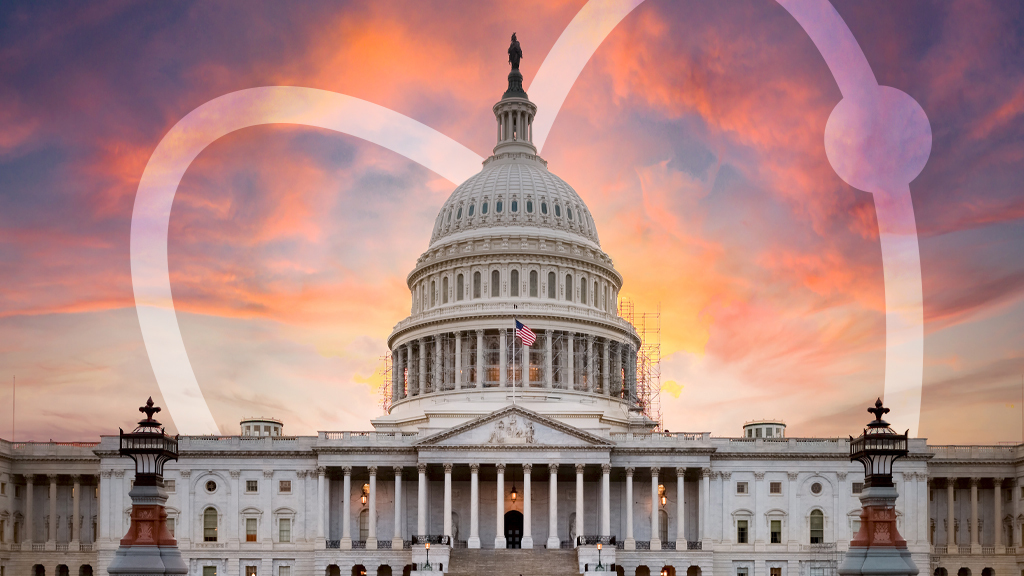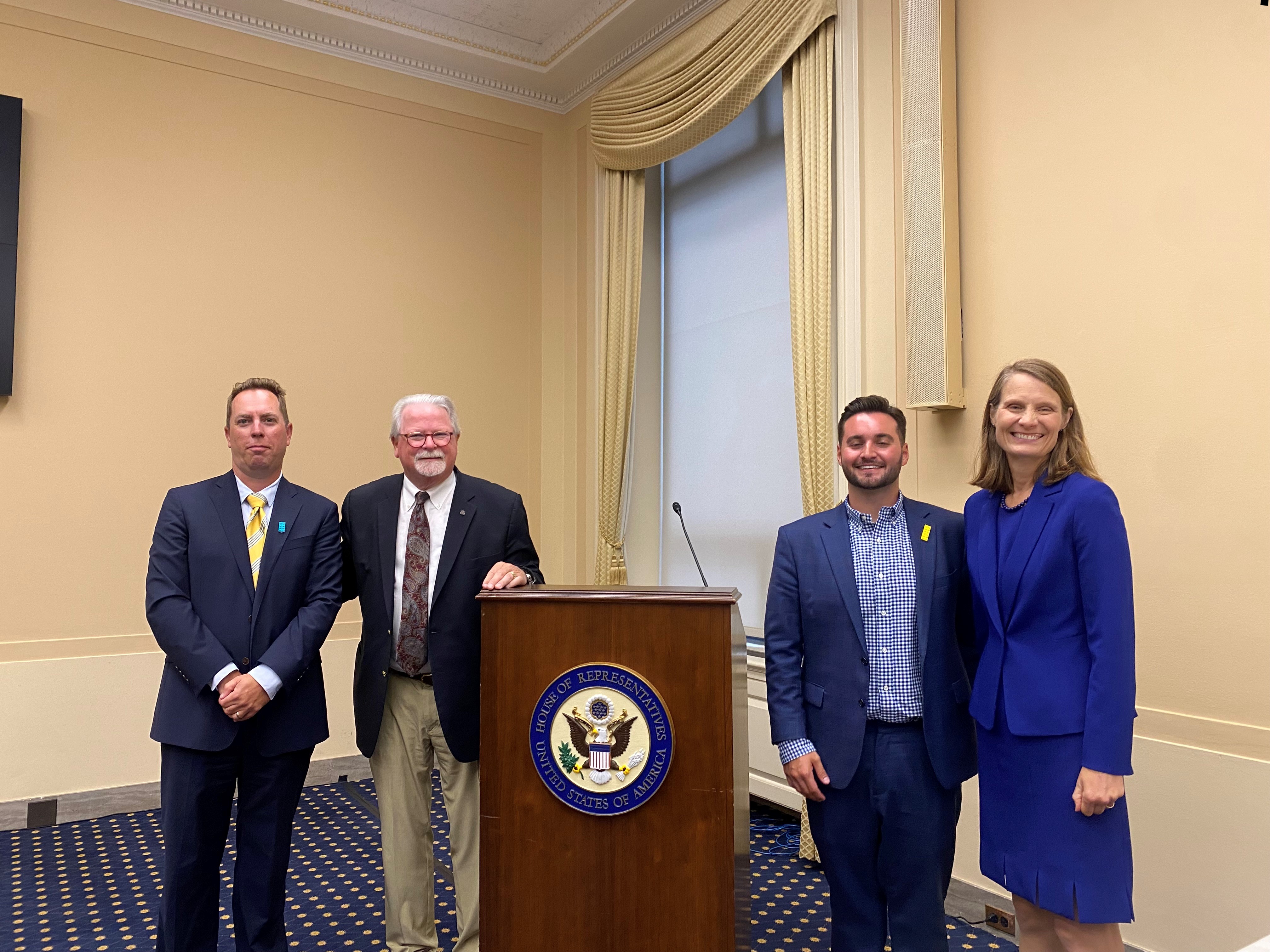Legislative Update
NSF and IES Announce New $15M R&D Center on Elementary Science
By NSTA Legislative Affairs & Advocacy Team
Posted on 2024-10-02

Disclaimer: The views expressed in this blog post are those of the author(s) and do not necessarily reflect the official position of the National Science Teaching Association (NSTA).
On September 25, the U.S. Department of Education’s Institute of Education Sciences (IES) announced the establishment of a new National Research and Development (R&D) Center on elementary science education, in collaboration with the National Science Foundation (NSF).
The new Center for Advancing Elementary Science through Assessment, Research, and Technology (CAESART) will directly respond to the vision of the Next Generation Science Standards (NGSS) by addressing the nationwide gap in the availability of high-quality science instruction and assessment for young students (grades K–2). CAESART will connect and build on existing networks of science researchers, leaders, and practitioners at the state, district, and school levels to engage in research and to share information generated through Center activities. CAESART's approach addresses several questions that together will provide insight into how to measure student science learning and provide evidence about whether interventions related to high-quality integrated science and literacy curriculum sustained over multiple school years can improve students’ science outcomes.
Over the next few years, researchers will conduct a landscape review of existing preK–5 science assessments and summarize the results in a public database; research, develop, test, and validate a set of technology-based assessments to capture young students’ science learning through adaptive and game-based approaches; use these assessments to measure the impact of an integrated science curriculum on science learning; and engage science and education stakeholders to align the research to their priorities and contexts, identify implications from the research, and build capacity for science assessment.
IES is equally sharing the investment with the NSF, with each contributing 50% of the total investment of $15 million.
Read more here.
Make Science Count: How K –12 Accountability Policies Impact Science Education
Elementary science was also the focus of the September 25 STEM Education Coalition briefing on Capitol Hill to discuss accountability, elementary science, and the new National Assessment of Educational Progress (NAEP) assessments. NSTA sponsored the event.
The National Academies of Science Call to Action for Science Education in 2021 found that elementary teachers spend an average of only 20 minutes a day on science, compared with 90 minutes a day on English Language Arts and 60 minutes a day on mathematics. The Capitol Hill briefing explored both the long-term and recent trends that have resulted in the decline of science learning, and how the new NAEP science assessment methods will better capture the impacts of hands-on learning.
Speakers at the forum included Dr. Christine Cunningham, Member, National Assessment Governing Board, and Senior Vice President of STEM Learning, Museum of Science, Boston; Peter McLaren, Executive Director, Next Gen Education, LLC; Connie Haymon, Master Teacher, Laurel Woods Elementary School, Howard County, Maryland; and David Todisco, MPA, Senior Manager, Government & Public Affairs, The LEGO Group.

Picture, from left to right: James Brown, STEM Education Coalition; Peter McLaren, Next Gen Education; David Todisco, The LEGO Group; and Christine Cunningham, Museum of Science, Boston, at the September 25 Capitol Hill briefing on science education.
Senate Passes Stopgap Funding Bill
On September 24, the Senate cleared a bipartisan, bicameral stopgap funding bill for programs that maintain current government funding until Friday, December 20, heading off the government shutdown at the end of the month when fiscal year (FY) 2025 begins, and setting up negotiations right before Christmas. The “kick-the-can” approach pushing the bill into December will also allow the next president elected this November to have influence on the final spending deal. President Biden is expected to sign the stopgap measure.
Over the past few months, NSTA has continued to weigh in on the FY 2025 spending bills. This past year, we have signed a community letter with more than 1,000 endorsing organizations asking for more money overall for the non-defense discretionary spending; signed on to letters asking for sufficient support for Title II and other investments that support teachers; and signed on to the STEM Education Coalition’s letter outlining priorities that support STEM education at the Department of Education, the NSF, and other agencies. Stay tuned.
Bill to Create National STEM Week Introduced in Congress
Legislation creating an annual week dedicated to promoting Science, Technology, Engineering, and Mathematics (STEM) was recently introduced in Congress.
Under the National STEM Week Act (H.R. 9556), the National Science and Technology Foundation Committee on Science, Technology, Engineering, and Mathematics (CoSTEM) education would designate a week each calendar year as “National STEM Week” to
highlight the importance of STEM education in educational institutions across the country;
showcase diverse career pathways within STEM fields in both classroom settings and informal learning environments; encourage family engagement with STEM activities at home to foster a conducive learning environment; facilitate partnerships between educational institutions and industry leaders to provide students with real-world applications and mentorship opportunities in STEM fields; and support states and local communities in developing and promoting their own STEM Week activities and resources, tailored to their unique educational and industrial landscapes.
Read the bill here.
NASA, U.S. Department of Education Launch Collaborative After-School STEM Project
On September 23, NASA and the Department of Education (ED) launched a collaborative effort to engage students in science, technology, engineering, and math (STEM) education during after-school hours.
Through the project, NASA’s Glenn Research Center in Cleveland and ED will align resources to provide STEM activities, professional development, and funding for after-school programs nationwide. NASA will offer staff training, continuous program support, and opportunities for students to engage with NASA scientists and engineers. The initiative also will include student activities that demonstrate practical applications of STEM concepts.
In May 2023, NASA and ED signed a Memorandum of Understanding, strengthening the collaboration between the two agencies and expanding efforts to increase access to high-quality STEM and space education to students and schools across the nation.
Learn more about the 21st Century Community Learning Centers here.
Stay tuned for more advocacy and policy updates in future issues of NSTA Reports and NSTA Weekly.
The mission of NSTA is to transform science education to benefit all through professional learning, partnerships, and advocacy.


